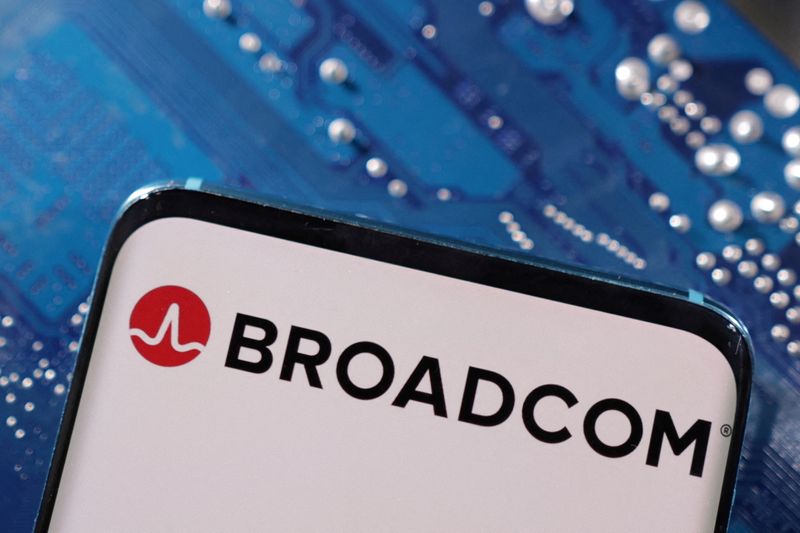(Reuters) - Beijing is weighing holding up U.S. chipmaker Broadcom (NASDAQ:AVGO) Inc's $69 billion purchase of cloud computing company VMware (NYSE:VMW) Inc, the Financial Times reported on Thursday citing three sources familiar with the matter.
China's State Administration of Market Regulation has not signed off on the deal and is likely to delay approving the transaction after U.S. President Joe Biden's administration introduced tougher chip controls on Tuesday, the report added.
Shares of VMware fell 7.5% in premarket trading on worries of China delaying deal approval.VMWare and Broadcom did not immediately respond to Reuters requests for comment. China's SAMR could not immediately be reached for comment.
China's merger and acquisition approvals for US companies now require additional consultations with the Ministry of Foreign Affairs and the State Council, the report added citing two people familiar with the talks.
Broadcom said in May 2022 it would acquire VMware in a deal consisting of $61 billion in equity and the rest in debt, the chipmaker's biggest and boldest bid to diversify its business into enterprise software.
The U.S. chipmaker said earlier that it continued to expect the transaction would close in the current fiscal year. Broadcom received legal merger clearance in Australia, Brazil, Canada, the European Union, South Africa, and Taiwan, and foreign investment control clearance in all necessary jurisdictions, the company said in July.

The deal has been probed previously by UK's Competition and Markets Authority (CMA) that approved the deal following an in-depth investigation. The chipmaker also secured EU antitrust approval of the deal this year after offering remedies to help rival Marvell (NASDAQ:MRVL) Technology, so the companies can compete on the same level.
China has been closely monitoring deals involving chipmakers. Earlier this year, Intel Corp (NASDAQ:INTC) scrapped its $5.4 billion deal to buy Israeli contract chipmaker Tower Semiconductor (NASDAQ:TSEM) Ltd after their merger agreement expired without regulatory approval from China.